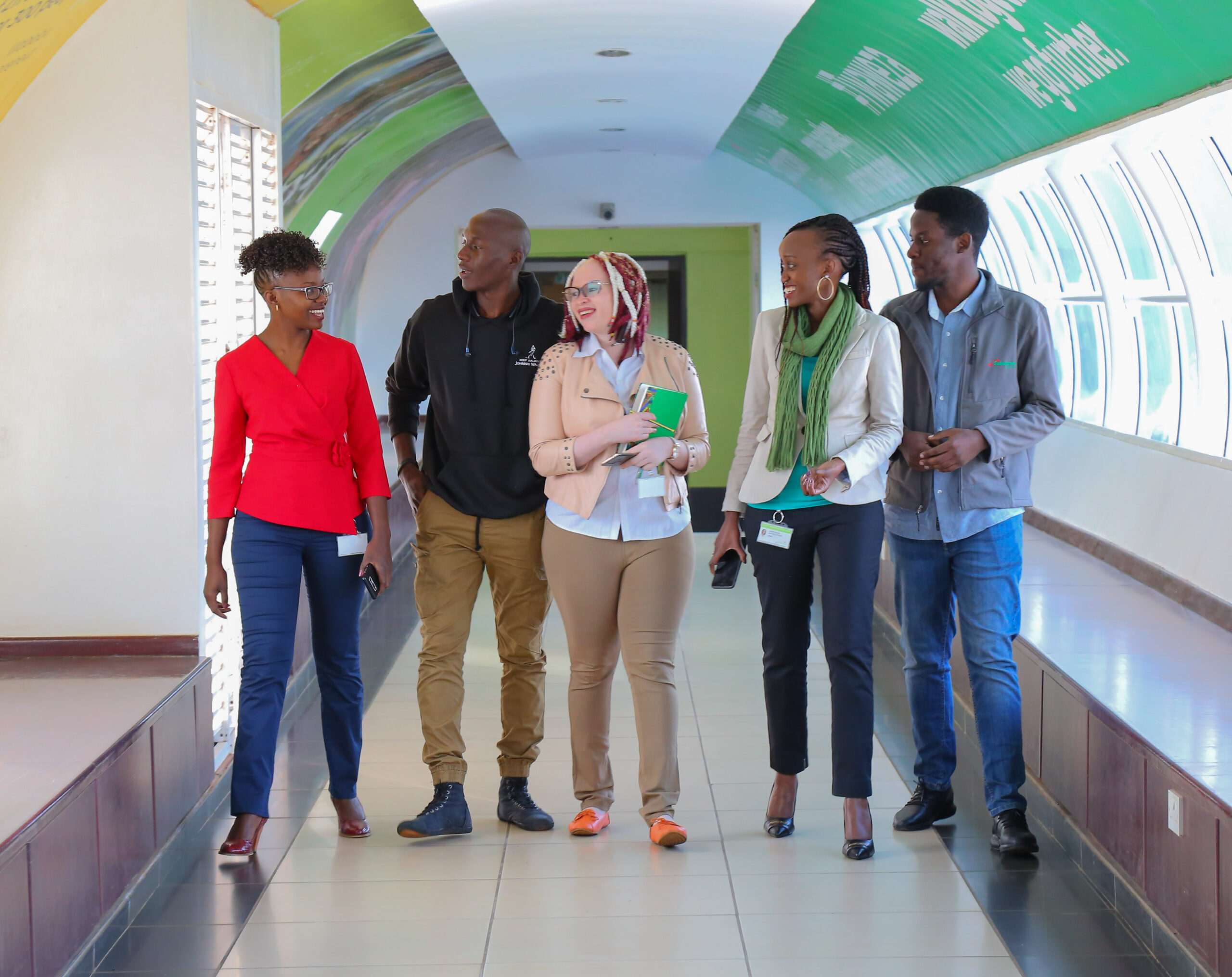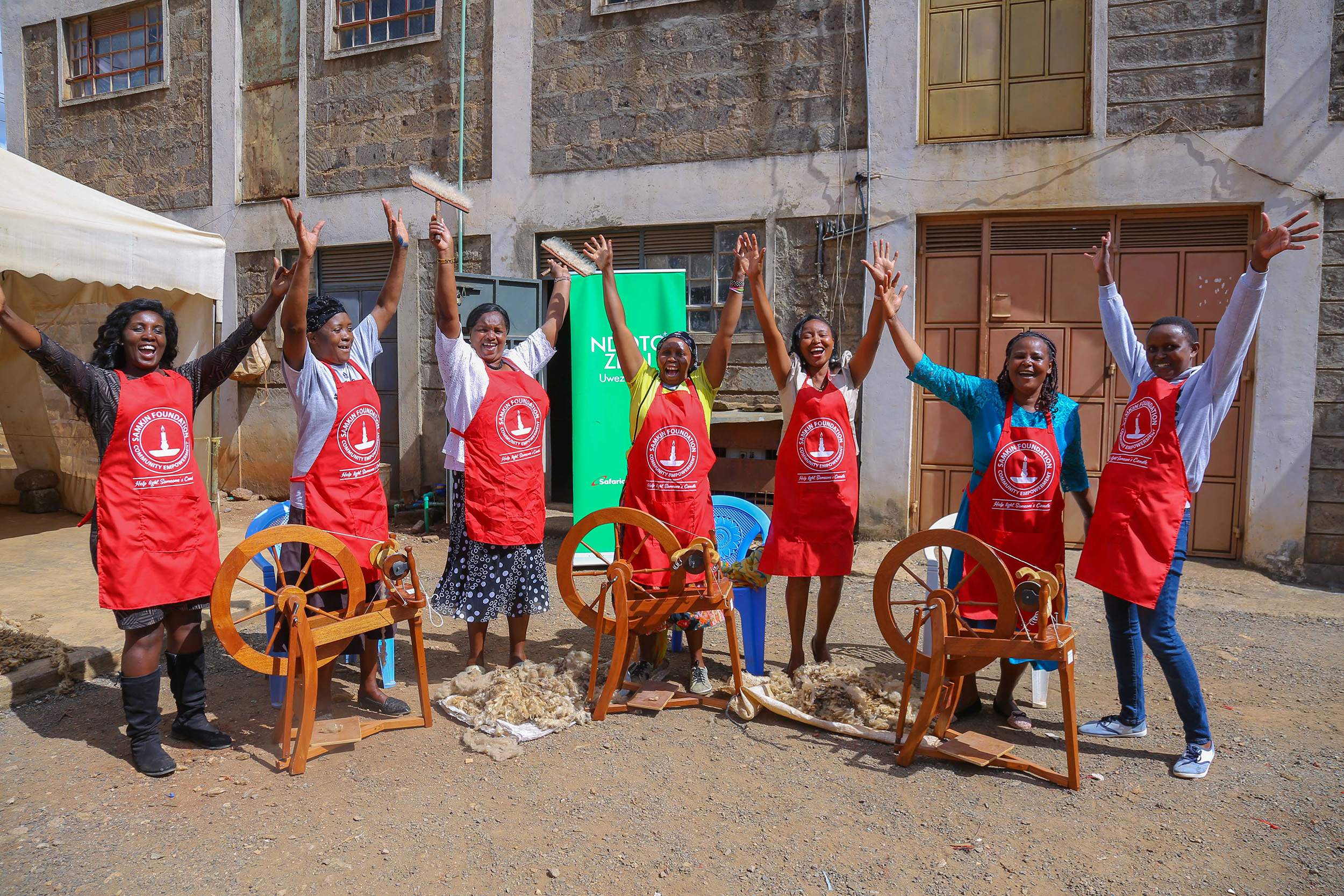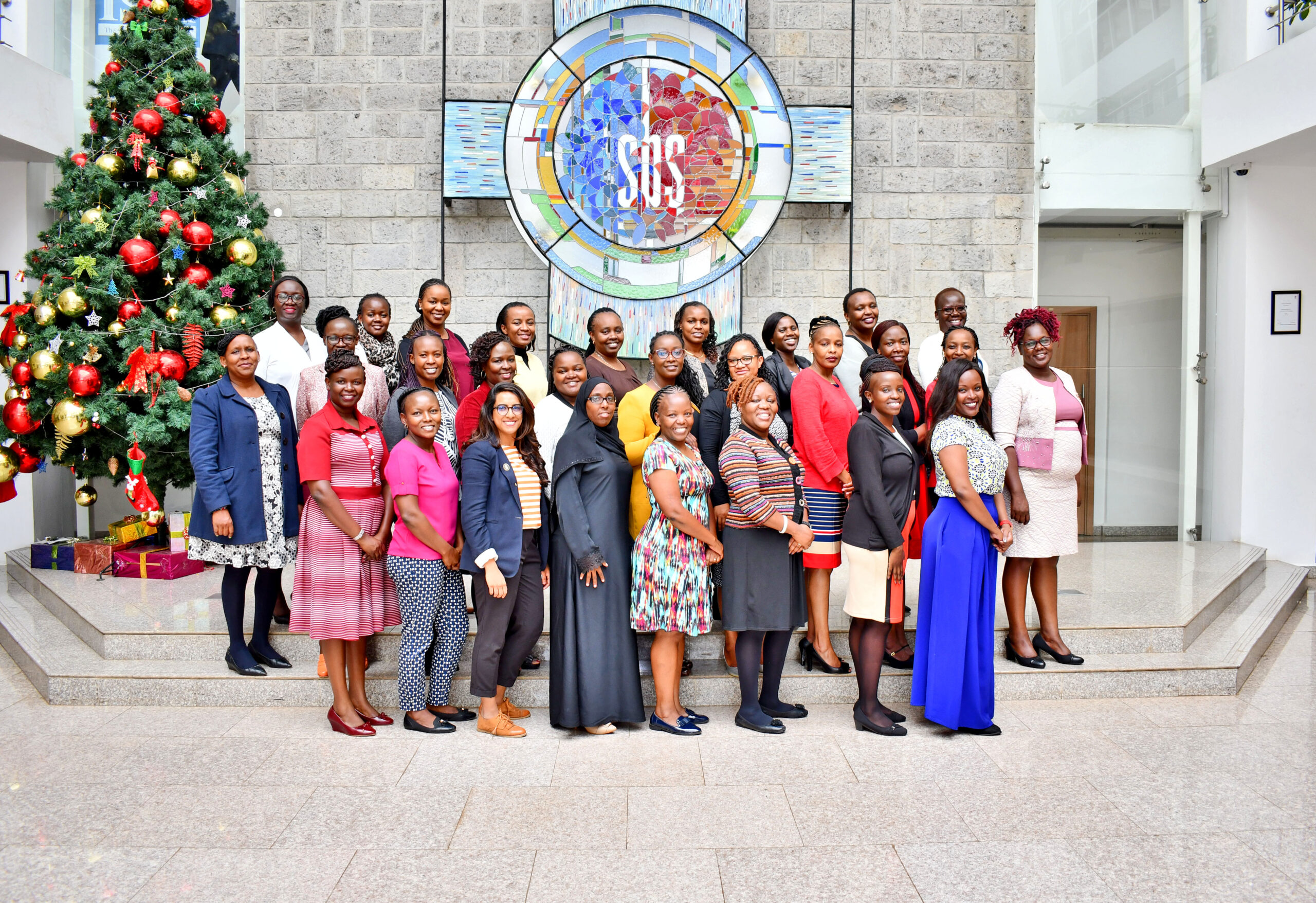Towards Gender Diversity
Safaricom is a leading technology company in Kenya, with a strong commitment to promoting gender equality in the workplace and in society
 Inclusive Workplace: Safaricom staff at the HQ in Westlands, Nairobi
Inclusive Workplace: Safaricom staff at the HQ in Westlands, Nairobi
Recognising that organisations need to be reflective of the communities they serve, Safaricom has implemented several initiatives, whether through its products and services, advocacy and partnerships, philanthropic initiatives, or sustainability practices, aimed at empowering women and promoting gender diversity.
Being a technology company, one of Safaricom’s key initiatives is the Women in Technology (WIT) program, which aims to onboard, build and retain women in STEM careers. This is achieved through six key programmes aimed at reaching out to the girl child at various stages of her education cycle by continuously providing support through coaching, mentorship, exposure to evolving technologies, technical platforms, and networks.
In addition to the WIT program, Safaricom has also implemented several other initiatives aimed at promoting gender diversity within the organisation, particularly within its senior leadership. Through its Women in Leadership program (WIL), Safaricom has continued to focus on building a healthy pipeline for its women leaders by providing coaching, mentorship and learning opportunities designed to grow women into leadership roles. Our target is 50:50 gender parity at all levels including senior leadership by 2025 and we are currently at 35% for senior leadership.
Recognising that products and services delivered by businesses today must offer solutions to societal challenges, Safaricom is also leveraging its portfolio to not only transform lives, but also enhance gender equality.
Safaricom was part of the first wave of operators to renew their Connected Women Commitment to 2023. It committed to increase the proportion of women who use its mobile money service from 46% to 50% and its data services from 47% to 50% by the end of 2023.
 Economic Empowerment: Brightrose Women Group members in Dagoretti South, Nairobi, celebrate after receiving a mat making machine from the Safaricom Foundation through the Ndoto Zetu initiative
Economic Empowerment: Brightrose Women Group members in Dagoretti South, Nairobi, celebrate after receiving a mat making machine from the Safaricom Foundation through the Ndoto Zetu initiative
To help meet this target, Safaricom launched a campaign to drive adoption and use of mobile internet in 2018, dubbed ‘Maisha Ni Digital’, through which it subsidised an array of entry-level smartphones to help address the barrier of affordability. In 2020, Safaricom partnered with Google to unveil Lipa Mdogo Mdogo, a device financing proposition that enables Kenyans access the internet and the world of possibilities via an array of smartphones that they can pay for as they use. Combined, these initiatives have seen thousands of women now access the transformative power of the internet, including accessing income-generating activities.
On the mobile money side, M-PESA has contributed greatly towards the financial inclusion and independence of women in Kenya. Before M-PESA, women would receive cash through proxies, which would result in some or total loss of funds. Now, women receive e-money directly onto their M-PESA wallets, enabling them to have more independence, certainty, and dignity.
Through its Women in Business (WIB) program, which seeks to provide women entrepreneurs with the tools and resources they need to succeed in business, Safaricom also supports and grows women-led businesses. Currently, it has over 200 women-owned businesses prequalified as suppliers, with conscious efforts to encourage such businesses to move from soft skills, such as events and catering, to technology services. Additionally, 10% of its procurement spend is dedicated to businesses led and owned by women, youth, and Persons with Disabilities.
Outside the organisation, Safaricom is a part of several partnerships and advocacy initiatives aimed at promoting gender equality within the community. These include being a signatory of the UN Women Empowerment principles, and the UNStreotype Alliance.
Safaricom has also taken steps to address gender-based violence, which is a significant problem in many parts of Kenya. The company has supported the 1195 gender-based violence hotline by availing airtime for tele-counsellors to provide psychosocial support for GBV victims/survivors.
Through its M-PESA and Safaricom Foundations, the company has also undertaken philanthropy initiatives towards providing economic empowerment for women, and promote access to health, particularly maternal health services to women in rural areas, where access to healthcare is often limited and has impacted over 280,000 lives.
Safaricom’s continued implementation of gender initiatives demonstrates its strong commitment to promoting gender equality within the communities it serves. These initiatives are not only the right thing to do, but they also make good business sense, as research has shown that companies with more gender diversity are more innovative and more profitable. Safaricom’s gender initiatives are a model for other companies to follow and demonstrate the company’s commitment to creating a better future for all.
 Women in Leadership: A section of female leaders graduate from a leadership program delivered by Strathmore Business School
Women in Leadership: A section of female leaders graduate from a leadership program delivered by Strathmore Business School




